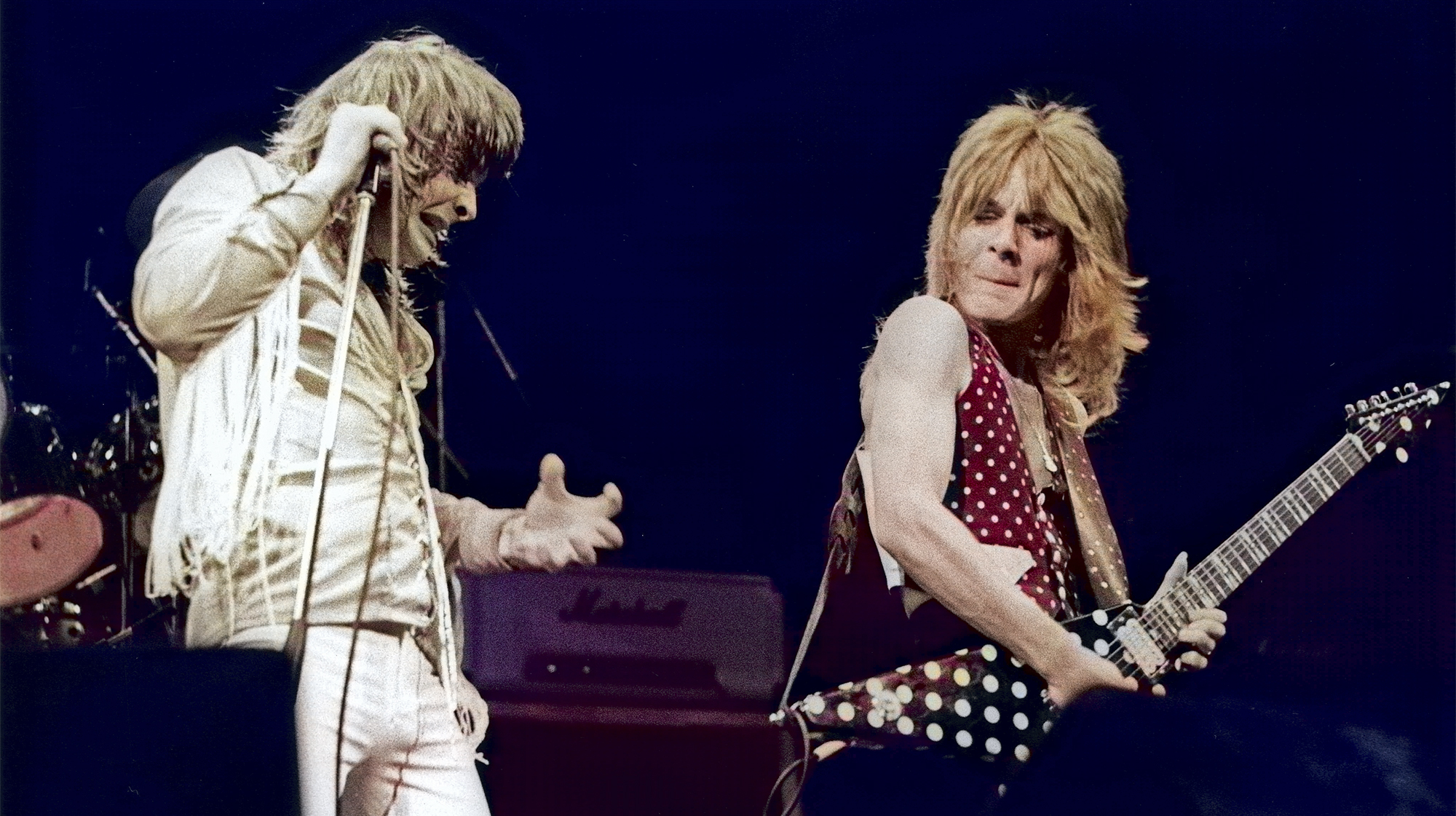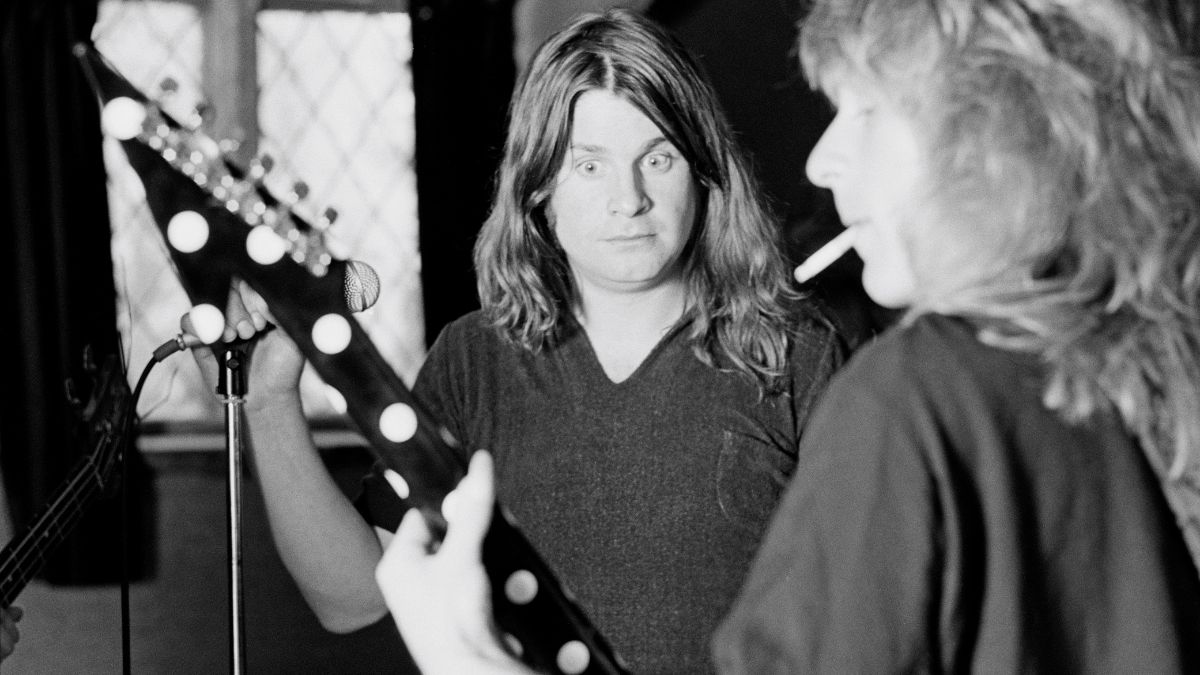“Ozzy told him, ‘Nobody can do that!’ Well, Randy could.” Randy Rhoads proved Ozzy Osbourne wrong with an approach to recording guitar solos that even Eddie Van Halen avoided
The Prince of Darkness had told him it couldn’t be done, but the guitarist had other ideas

All the latest guitar news, interviews, lessons, reviews, deals and more, direct to your inbox!
You are now subscribed
Your newsletter sign-up was successful
While a former Van Halen recording engineer has recently revealed why Eddie Van Halen shunned double-tracking his parts, Randy Rhoads’ sister has detailed the late virtuoso’s oddball recording tactics. He wanted to triple-track his Ozzy Osbourne guitar solos despite the singer's protests.
“Nobody would be more shocked than Randy himself,” Kathy tells Guitar World of the seemingly boundless talents he had at his disposal.
The guitarist had featured on two Quiet Riot records before becoming the Prince of Darkness’ talisman as he looked to launch a solo career in the wake of his departure from Black Sabbath. Bassist Bob Daisley said he had a premonition that he was destined for greatness after his audition, but he was still a young, bright-eyed musician. He had a hell of a responsibility on his shoulders.
“When he recorded those albums, he was 21 or 22,” Kathy echoes.
But his youth and lack of experience didn’t stop him from going against the grain in the studio.
“He triple-tracked his solos,” she continues. “Ozzy told him, ‘Nobody can do that!’ Well, Randy could. That was just the genius of Randy.”
Traditionally speaking, rhythm guitar parts are double-tracked – and sometimes quad-tracked – to produce a thicker sound. They are then panned to the far sides of the stereo sound.
All the latest guitar news, interviews, lessons, reviews, deals and more, direct to your inbox!
Leads, however, are usually single-tracked, save for harmonies. Eddie Van Halen avoided going down this route for his riffs, as there were so many nuances in his playing. Those differences would create glaring clashes in the mix. The other option was to simplify the part, or his approach to their performance, but he wasn’t willing to do that.
That Rhoads triple-tracked his solos shows the extraordinary accuracy with which he could play.
However, Rudy Sarzo, who played in Ozzy’s band during the latter part of Rhoads’ life, says he didn’t carry that mindset onto the stage – he rarely played the same lick twice.

“On the road, Randy would take what he'd already recorded and take it to new levels of intensity,” he said earlier this year. “From being there, and listening to him playing, the portion of [Ozzy's] set where Randy would be the most experimental was during the solos.
“Randy was not really wired to play the same thing every night,” he went on. “He was too creative for that.”
Kathy’s Guitar World interview also sees her reflecting on what could have been, had her brother’s life not ended so cruelly at the age of just 25.
“There was a charisma about Randy,” she beams. “He had the looks, and everybody just gravitated toward him. There was a charm that seemed to glow.
“He was only beginning [when he died]. Ozzy once said Randy was somebody that comes to this planet and bursts off like a shooting star.”
She also talks about the fact his name is still regularly mentioned in conversations about influences, heroes, and the cream of the crop players, generations later. That, she says proudly, “puts a smile on my face. They carry his memory to this day.”
Meanwhile, it's been revealed that Ozzy had a remote switch to turn off Rhoads' pedalboard from his hotel room, as his constant thirst for practicing and improving drove the singer crazy.
When Rhoads died, some questioned why the band were back out on the road so quickly, despite the tragedy. Sarzo, conversely, has explained the band's thinking and how doing so kept Ozzy alive.
A freelance writer with a penchant for music that gets weird, Phil is a regular contributor to Prog, Guitar World, and Total Guitar magazines and is especially keen on shining a light on unknown artists. Outside of the journalism realm, you can find him writing angular riffs in progressive metal band, Prognosis, in which he slings an 8-string Strandberg Boden Original, churning that low string through a variety of tunings. He's also a published author and is currently penning his debut novel which chucks fantasy, mythology and humanity into a great big melting pot.


